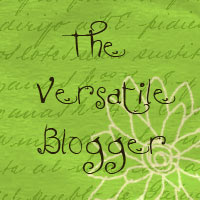The goal posts:
TIME critics Lev Grossman and Richard Lacayo pick the 100 best English-Language novels from 1923 to the present.
Since I've been on a kick to see how many novels I've read on these lists, I figured I would give TIME magazine's list a shot. It's a bit more modern, so I suppose that I'll do WORSE with this one. I tend to read a lot of classics that are pre-1923. Why did they pick that year, I wonder?
The Adventures of Augie March (1953), by Saul Bellow
All the King's Men (1946), by Robert Penn Warren
American Pastoral (1997), by Philip Roth
An American Tragedy (1925), by Theodore Dreiser
Animal Farm (1946), by George Orwell (READ)
Appointment in Samarra (1934), by John O'Hara
Are You There God? It's Me, Margaret (1970), by Judy Blume
The Assistant (1957), by Bernard Malamud
At Swim-Two-Birds (1938), by Flann O'Brien
Atonement (2002), by Ian McEwan
Beloved (1987), by Toni Morrison
The Berlin Stories (1946), by Christopher Isherwood
The Big Sleep (1939), by Raymond Chandler
The Blind Assassin (2000), by Margaret Atwood
Blood Meridian (1986), by Cormac McCarthy
Brideshead Revisited (1946), by Evelyn Waugh
The Bridge of San Luis Rey (1927), by Thornton Wilder
Call It Sleep (1935), by Henry Roth
Catch-22 (1961), by Joseph Heller (READ)
The Catcher in the Rye (1951), by J.D. Salinger (READ)
A Clockwork Orange (1963), by Anthony Burgess
The Confessions of Nat Turner (1967), by William Styron
The Corrections (2001), by Jonathan Franzen
The Crying of Lot 49 (1966), by Thomas Pynchon
A Dance to the Music of Time (1951), by Anthony Powell
The Day of the Locust (1939), by Nathanael West
Death Comes for the Archbishop (1927), by Willa Cather
A Death in the Family (1958), by James Agee
The Death of the Heart (1958), by Elizabeth Bowen
Deliverance (1970), by James Dickey
Dog Soldiers (1974), by Robert Stone
Falconer (1977), by John Cheever
The French Lieutenant's Woman (1969), by John Fowles
The Golden Notebook (1962), by Doris Lessing
Go Tell it on the Mountain (1953), by James Baldwin
Gone With the Wind (1936), by Margaret Mitchell
The Grapes of Wrath (1939), by John Steinbeck (READ)
Gravity's Rainbow (1973), by Thomas Pynchon
The Great Gatsby (1925), by F. Scott Fitzgerald (READ)
A Handful of Dust (1934), by Evelyn Waugh
The Heart is A Lonely Hunter (1940), by Carson McCullers
The Heart of the Matter (1948), by Graham Greene
Herzog (1964), by Saul Bellow
Housekeeping (1981), by Marilynne Robinson
A House for Mr. Biswas (1962), by V.S. Naipaul
I, Claudius (1934), by Robert Graves
Infinite Jest (1996), by David Foster Wallace
Invisible Man (1952), by Ralph Ellison
Light in August (1932), by William Faulkner
The Lion, The Witch and the Wardrobe (1950), by C.S. Lewis (READ)
Lolita (1955), by Vladimir Nabokov (READ)
Lord of the Flies (1955), by William Golding (READ)
The Lord of the Rings (1954), by J.R.R. Tolkien (READ)
Loving (1945), by Henry Green
Lucky Jim (1954), by Kingsley Amis
The Man Who Loved Children (1940), by Christina Stead
Midnight's Children (1981), by Salman Rushdie
Money (1984), by Martin Amis
The Moviegoer (1961), by Walker Percy
Mrs. Dalloway (1925), by Virginia Woolf
Naked Lunch (1959), by William Burroughs
Native Son (1940), by Richard Wright
Neuromancer (1984), by William Gibson
Never Let Me Go (2005), by Kazuo Ishiguro
1984 (1948), by George Orwell (READ)
On the Road (1957), by Jack Kerouac
One Flew Over the Cuckoo's Nest (1962), by Ken Kesey
The Painted Bird (1965), by Jerzy Kosinski
Pale Fire (1962), by Vladimir Nabokov
A Passage to India (1924), by E.M. Forster (READ)
Play It As It Lays (1970), by Joan Didion
Portnoy's Complaint (1969), by Philip Roth
Possession (1990), by A.S. Byatt
The Power and the Glory (1939), by Graham Greene
The Prime of Miss Jean Brodie (1961), by Muriel Spark
Rabbit, Run (1960), by John Updike
Ragtime (1975), by E.L. Doctorow
The Recognitions (1955), by William Gaddis
Red Harvest (1929), by Dashiell Hammett
Revolutionary Road (1961), by Richard Yates
The Sheltering Sky (1949), by Paul Bowles
Slaughterhouse Five (1969), by Kurt Vonnegut (READ)
Snow Crash (1992), by Neal Stephenson
The Sot-Weed Factor (1960), by John Barth
The Sound and the Fury (1929), by William Faulkner (READ)
The Sportswriter (1986), by Richard Ford
The Spy Who Came in From the Cold (1964), by John le Carre
The Sun Also Rises (1926), by Ernest Hemingway (READ)
Their Eyes Were Watching God (1937), by Zora Neale Hurston
Things Fall Apart (1959), by Chinua Achebe
To Kill a Mockingbird (1960), by Harper Lee (READ)
To the Lighthouse (1927), by Virginia Woolf
Tropic of Cancer (1934), by Henry Miller
Ubik (1969), by Philip K. Dick
Under the Net (1954), by Iris Murdoch
Under the Volcano (1947), by Malcolm Lowry
Watchmen (1986), by Alan Moore & Dave Gibbons
White Noise (1985), by Don DeLillo
White Teeth (2000), by Zadie Smith
Wide Sargasso Sea (1966), by Jean Rhys
I've read 15 out of the 100, which is pretty pathetic even by my standards.


















